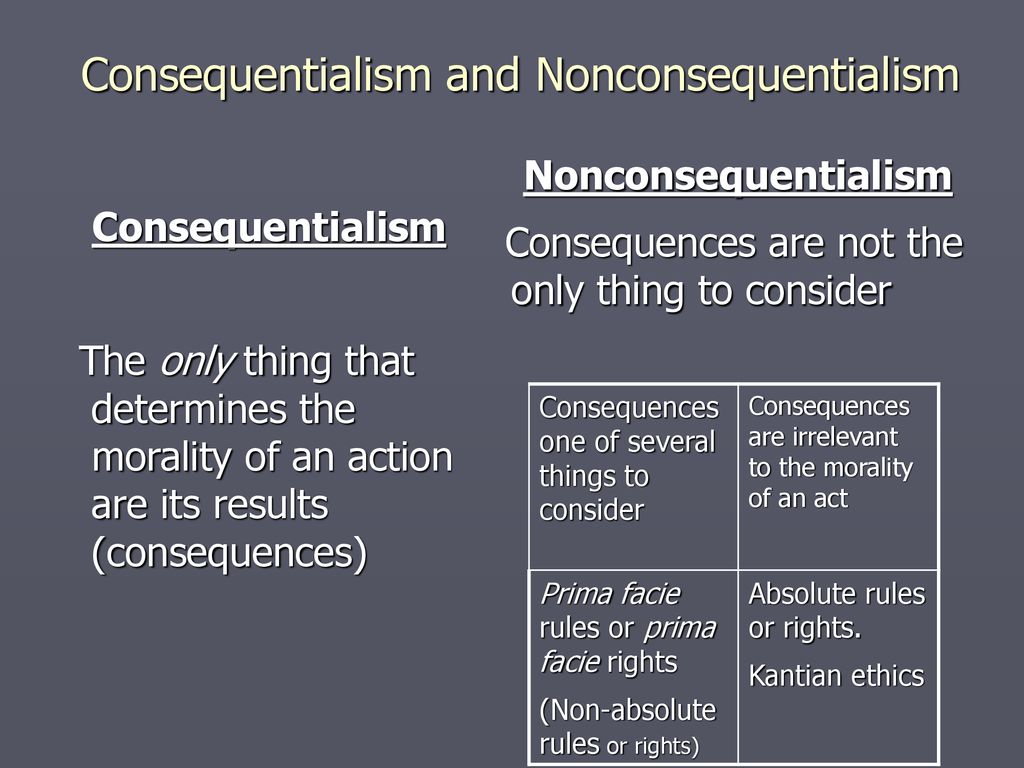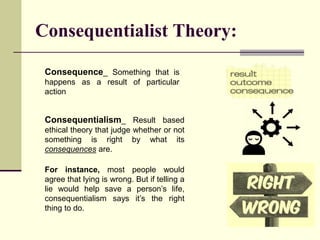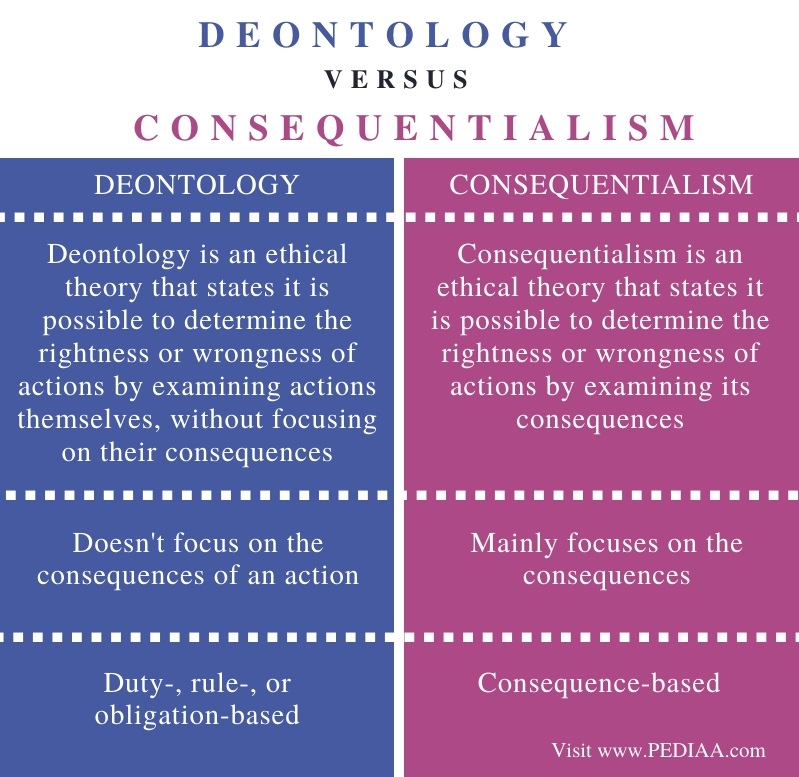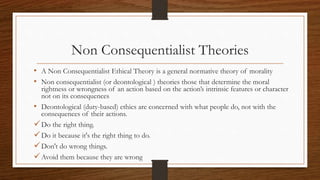Definition of Non Consequentialism in Ethics
A nonconsequentialist theory states that moral. Definition of Consequentialism and Utilitarianism Consequentialism isnt a single theory but.

Ethical Theory Utilitarianism Consequentialism In Practice Ppt Download
Nonconsequentialism is a normative ethical theory which denies that the rightness or wrongness of our conduct is determined solely by the goodness or badness of the.

. Non-Consequentialist Theories always reach decisions or evaluations on the basis of something other than or in addition to the sum total or net aggregate of the consequences. Phil 1122 Business Ethics Consequentialism Lecture Notes Week 3 250122 Part 1. Consequentialism is a theory that says whether something is good or bad depends on its outcomes.
10 rows In contrast to consequentialist views of morality there are also non-consequentialist views. However non-consequenliatist theory has a negative meaning to consequenlialist theory which is no matter the result is good or bad if the act is wrong then the all things are wrong. A non consequentialist wont think a.
The opposite of consequentialism is unsurprisingly non-consequentialism although this could also be labeled as deontological ethics. Consequentialism includes a range of ethical views including utilitarianism. But if telling a lie.
Non Consequential Ethical theory It judges the rightness or wrongness of an action based on properties intrinsic to the action not on its consequence. Consequentialism is an ethical theory that judges whether or not something is right by what its consequences are. The Greek terms deon and logos means duty and reasoning.
A non-consequentialist theory of value judges the rightness or wrongness of an action based on properties intrinsic to the action not on its consequences. A non-consequentialist would say it is inherently wrong to murder people and refuse to kill X even though not killing X leads to the death of 9 more people than killing X. Nonconsequentialism is a type of normative ethical theory that denies that the rightness or.
Nonconsequentialism is a type of normative ethical theory that denies that the rightness or wrongness of our conduct is determined solely by the goodness or badness of the. Kants Ethics- non-consequentialist theory German philosopher Immanuel Kant 1724-1804 sought moral principles that define actions as inherently right or wrong irrespective of any. A non-consequentialist theory of value judges the rightness or wrongness of an action based on properties intrinsic to the action not on its consequences.
The opposite of consequentialism known as non-consequentialism argues that the potential consequences of a given action should not be taken into consideration when. Non-consequentialism therefore is the view that the rightness of an action is not based solely on its consequences. For instance most people would agree that lying is wrong.
From this viewpoint the morality. This week I learned about several different moral theories non consequentialist theories consequentialist theories and virtue theories. Deontological Ethics refers to a class of ethics in which the principle of obligation is the basis of moral decision making.
An action that brings about more benefit than harm is good while an action. Deontology is an ethical theory that uses rules to distinguish right from wrong. Kant believed that ethical actions follow.
A non-consequentialist theory of value judges the rightness or wrongness. Consequences do not and in fact. Deontology is often associated with philosopher Immanuel Kant.

Consequentialist And Non Consequentialist Theory

What Is The Difference Between Deontology And Consequentialism Pediaa Com

Ethics Act Non Consequentialist Travis Youtube

0 Response to "Definition of Non Consequentialism in Ethics"
Post a Comment